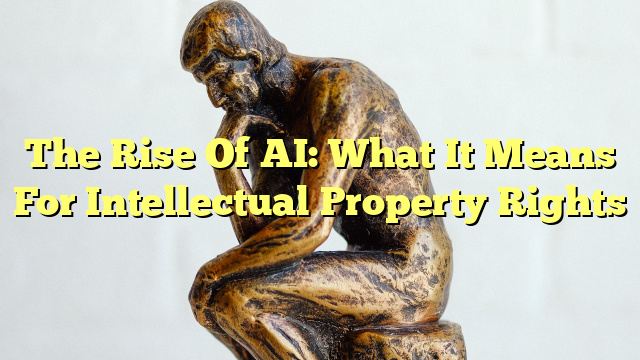Table of Contents
How does AI affect intellectual property rights?
AI, or artificial intelligence, has a significant impact on intellectual property rights. With the rise of AI technologies, there is a growing concern about how these technologies will impact the protection and enforcement of intellectual property. AI has the ability to create, analyze, and generate new works, which raises questions about ownership and attribution.
Furthermore, AI can also be used to infringe on intellectual property rights. For example, AI algorithms can be used to create deepfake videos or generate counterfeit products, leading to issues of copyright infringement and trademark violations.
What AI means for intellectual property?
AI presents both opportunities and challenges for intellectual property. On one hand, AI technologies can be used to enhance the creation and innovation process. AI algorithms can analyze vast amounts of data, identify patterns, and generate new ideas, leading to advancements in various fields.
On the other hand, AI also raises questions about ownership and attribution. With AI-generated works, it becomes difficult to determine who should be credited as the creator or owner of the work. This can lead to disputes and legal challenges in the field of intellectual property.
Can AI have intellectual property rights?
Currently, AI does not have legal personhood or the ability to hold intellectual property rights. Intellectual property rights are typically granted to human creators or inventors. However, there is ongoing debate about whether AI should be granted some form of legal recognition and rights.
Some argue that AI should be recognized as a creator or inventor if it autonomously generates a work or invention. Others believe that AI should be treated as a tool or toolset used by human creators, and the intellectual property rights should be attributed to the human user.
Is AI going to change intellectual property dynamics?
AI is likely to change the dynamics of intellectual property. As AI technologies continue to advance, there will be a need for new laws and regulations to address the challenges and opportunities presented by AI.
There may be a need to redefine the criteria for intellectual property protection and attribution in the context of AI-generated works. Additionally, there may be a need to establish guidelines for AI ethics and responsible use to prevent misuse and infringement of intellectual property rights.

